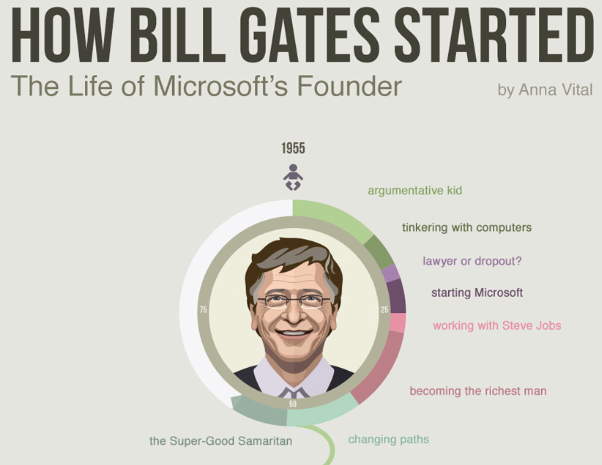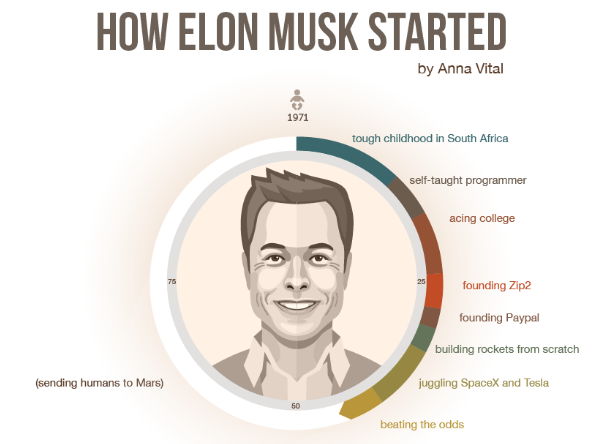Celebrities

From blog.adioma.com
1. Have you ever seen a celebrity in person? What did you do?
I might have seen some famous music stars in reality when I worked for a restaurant, but first they were not of my interest. I don’t like music that much and I am also a bit maverick, (suy nghĩ độc lập không theo đám đông) not to follow the crowd. Second, I wanted to leave them alone to enjoy their normal meals with their family and friends. So guess what I did while everyone else took turn to ask them for selfie. I was even not there to observe the scene, but just got updates about the incidents from the staff’s Facebook pictures.
2. Which celebrity would you like to meet? What would you do if you could spend a day with this person?
If I had a chance, I would love to see Dang Le Nguyen Vu, a businessman with great entrepreneurship (tinh thần khởi nghiệp) and the owner of Trung Nguyen coffee which is now present in more than 60 countries in the world. This man built Trung Nguyen brand from cratch (từ con số 0) and upholds many values (trân trọng nhiều giá trị) in doing business that resonate (cộng hưởng) with my belief. I think if I can meet him, we will talk a lot about solving social problems, bringing happiness to workers, and developing a workplace culture. Despite a positive business scenario (viễn cảnh kinh doanh) for Trung Nguyen coffee, this visionary man (người có tầm nhìn xa) looks ahead to implement a very thorough plan (kế hoạch triệt để) to revamp (sửa chữa) his business from the core of production technology, the quality of the human resource and from the first step in the production process, the planting of the coffee tree. If I meet him, I think it will take several hours or even days just to talk about the reasons behind his intention to have an overhaul (đại tu) of the company while it still functions well.
3. Do you think famous people have the right to have a private life?
Definitely. Above all, they are human beings who need to lead a peaceful life. That peace is severely intruded (bị xâm phạm nghiêm trọng) by paparazzi (thợ săn ảnh) and over-obsessed fans. (người hâm mộ bị ám ảnh thần tượng quá mức) Those who are always under social scrutiny (xem xét kĩ) and have hundreds of hidden camera pointing at them even when they are in their disguise, (cải trang) will feel very insecure and thus will have to always restrain (kiềm chế) themselves in a cage drawn by public expectations. Living with their true self (sống là chính mình) is harder than ever if they don’t want to turn themselves in to the spotlight of notoriety. (sự chú ý của công chúng về những vấn đề gây tai tiếng xấu)
It’s well acknowledged that privacy for celebrities is a dream which never comes true, but I believe, if we think a little for them, we will not pry into (soi mói) their private lives. Even worse, when people have gained fame, not only they themselves but also the ones they are close to will be in the public eye. (bị soi mói) Therefore, if we are not thinking for the private life of celebrities, I strongly believe we should think for the privacy of people around them and let them alone to have their private lives.
4. Do you think it’s moral to sell your private life to the media?
I don’t think it is moral because it will definitely violate the privacy (vi phạm sự riêng tư) of people I spend time with. When I reap benefits (thu lợi) from sharing my life to the public, I have to disclose my relationships, events, or stories, and the main characters involved will be involuntarily exposed to the public eye as well. Therefore sharing my life on the media and getting financial rewards means hurting people I love and care about. Who is ruthless (vô tâm) enough to do so, I am wondering.
5. Do you approve of people who become famous as a consequence of appearing again and again in the media and not because of having an artistic career?
People do not always have clear and sensible reasons (lý do chính đáng) for liking something. Many people have fun following some making their appearance on the Internet frequently but not artistically. Take the Youtube phenomenon Le Roi in Vietnam for example, he just made clips of himself singing very enthusiastically but very badly. He soon became a topic of jokes, but lots of people love him because he brings them laugh and entertainment. Therefore, each person has a different value, and they do not need to be artistic to be in the media. As long as what they do is enjoyed by the public, their appearance in the media is worthy (có giá trị) and will be advocated. (được ủng hộ)
6. What do you think of the papparazzi?
I strongly object to (phản đối) those people who launch themselves into a career that just harasses the celebrities for the pleasure of the media subscribers. No one pokes their noses more into others’ business (xía vào chuyện của người khác) as deeply as paparazzi. (thợ săn ảnh) I see there are much more values these people can add into life if they leave the gutter press (báo lá cải) and turn to serious journalism. What is sensational (lan tỏa) in the press are not stories of good manners but the dark side, or the controversial issues (vấn đề gây tranh cãi) of a person. But I believe, paparazzi even theatricalize (kịch tính hóa) their captures to arouse more curiosity (khơi gợi trí tò mò) and make stories more intriguing. (hấp dẫn hơn) That is not fair for famous people.
I think that with the development of social media and the participation of billions of amateur reporters equipped with personal phone cameras, if there is any altercation (cãi vã nơi đông người), fighting, or other improper behaviors of people regardless of (bất kêt) age, race, sex, gender, or social status, they will be captured in clips which circulate (lưu hành) at the speed of light and may soon become viral online. Therefore, without paparazzi, people still have what they are interested in in its true, unbiased (không thiên lệch) and undistorted form and content. (nội dung và hình thức không bị bóp méo). In brief, I don’t think paparazzi should continue to be accepted by society.
7. Why do you think there is such a high demand for gossip magazines and gossip TV programs?
On the one hand, I guess it may be because of the human inherent desire (mong muốn cố hữu) for raising opinions. When following gossiping content in the media, people are engaged in the loosely constructed arguments that invite comments from different perspectives (quan điểm khác nhau). No matter which sides people are on, they know there will be someone with them in a certain viewpoint. The seed of individual opinions, therefore, meets its breeding ground (nơi sinh sôi nảy nở) to geminate (nảy mầm) and proliferate (phát triển, nhân rộng mạnh).
On the other hand, for the purpose of socialization, bringing the gossips from the media into conversations can be seen as a bridge between the two conversers.(người nói chuyện). Therefore, gossiping contents in the media serves as food for thoughts (điều gợi suy nghĩ) and as icebreakers (yếu tố giúp các bên thoải mái khởi đầu câu chuyện) in meetings.
The deep root of the needs for raising personal opinions in the human nature together with the practical application of gossiping contents in starting and maintaining conversations have granted these contents a firm foothold (chỗ đứng vững chắc) in the mass media for centuries now.
8. What are the pros and cons of being a celebrity?
As for the bright side of being a celebrity, financial gains, the great influence on others, social recognition, and warm welcome in places are the key advantages, while the loss of privacy, the constraint of society’s expectation imposed on celebrities’ behaviors and lifestyles, and the feeling of loneliness can be counted as the major downside of fame.

From blog.adioma.com
9. What do you think of fans and fan-clubs ?
If the love of fans is huge enough for their idols, they will join fan clubs and voluntarily or even passionately become ambassadors (đại sứ) for their celebrities. There is nothing right or wrong about having such a great adoration (sự yêu mến) for a talented figure, so I just take it for granted as a normal phenomenon of society without any further questions into the nature of it.
As for me, I don’t have any idol, nor am I a fan of any club because I believe no one is perfect, and that I would love to learn from the good of everyone rather than sticking to only one role model in life and ignore the quintessences (tinh hoa) of many others. Especially, when some very valuable lessons can be drawn from very ordinary people.
10. Why do you think adolescents need to have heroes?
They are in the search for true values in life, and for a role model to follow I guess. When teenagers have not fully understood who they are and what they should do, having a bright example to look up to is crucial to them because their heroes will orientate (định hướng) them in a certain direction to realize their vision (hiện thực hóa viễn cảnh) for the future.
11. Do you think being a celebrity automatically means the person is intelligent?
It depends on how people define intelligence but I myself believe that famous people are smart in their own ways. That may be a great display of (i) logical-mathematical, (ii) musical, (iii) spatial (good at drawing, and working with 3D space), (iv) linguistic (good at language) , (v) bodily-kinesthetic (good at sports) , (vi) intrapersonal (good at self -understanding), (vii) interpersonal (good at relationships), (viii) existential (good at understanding the meaning of life), or (ix) naturalist intelligence (good at understanding the natural world) according to American developmental psychologist Howard Gardener (1983).
The above types intelligence ensure great performances of people in certain fields, so I believe if someone has become renowned (nổi tiếng), they must possess one or many type of intelligence to excel in their work and thus gain recognition and appreciation from the public.
12. Do you think that there are times when the common man has an edge over a celebrity?
It leads me to thinking about situations when the celebrities are saved by ordinary people. But that fame and popularity for the ordinary people will surely be short-lived (chóng vánh). That proves the fact that to earn the status of a celebrity, countless efforts need to be devoted to professional development. Only so can social recognition for a person be sustainable. (bền bỉ)
13. If you could influence people like a celebrity does, how would you use it for the benefit of the planet?
I would lead a modest and environmentally-friendly life, and care for solutions to social problems. That is a lot of work in those life goals already, and if I could influence people, I would set a good example to inspire them to lead that similarly useful lifestyle for fellow human beings and for the nature as a whole.














